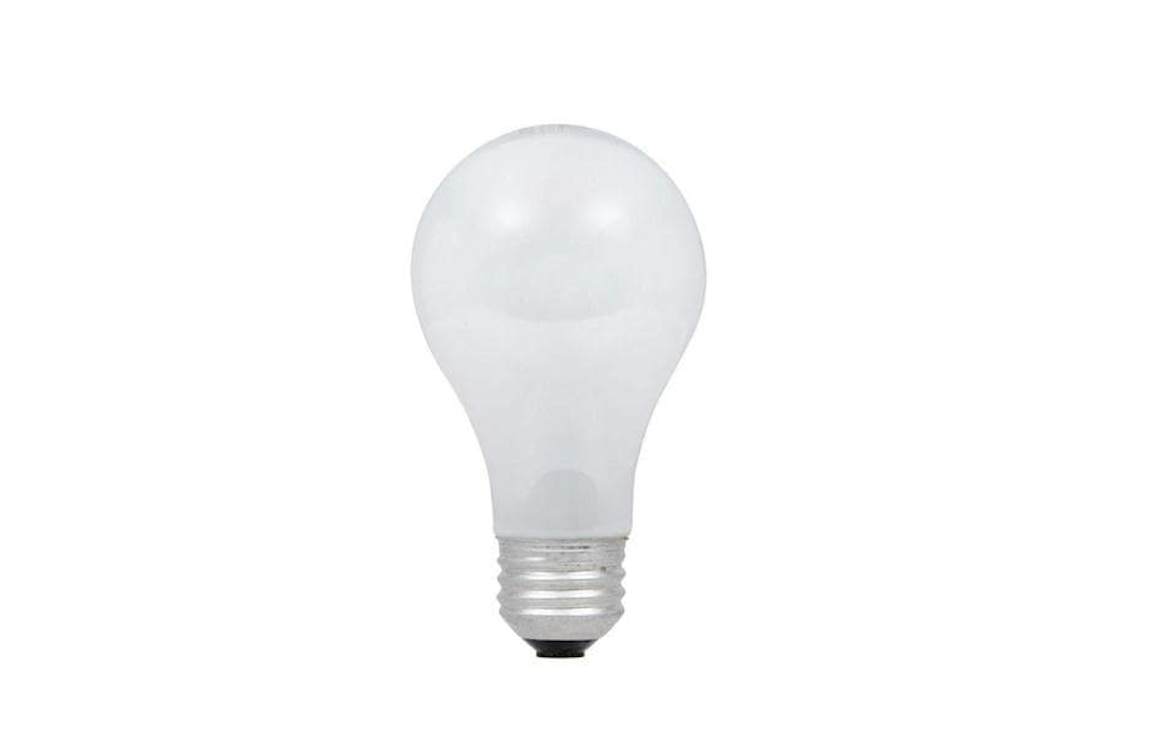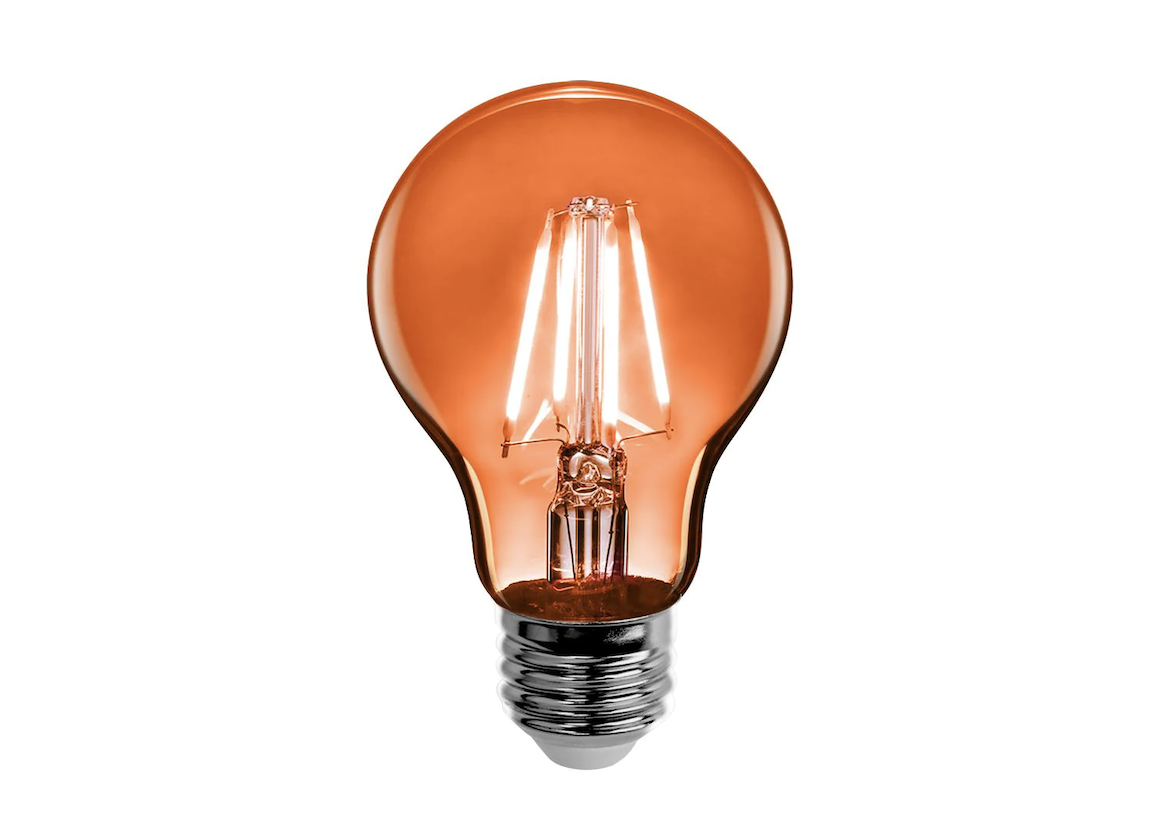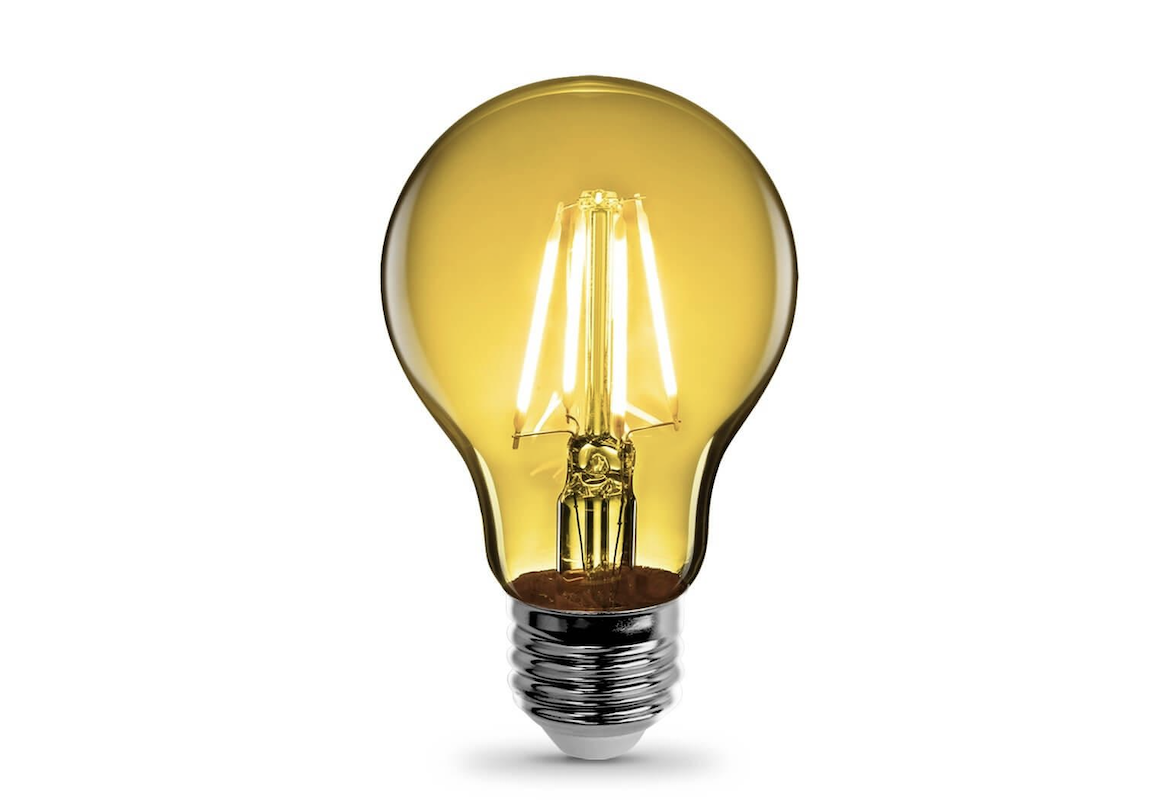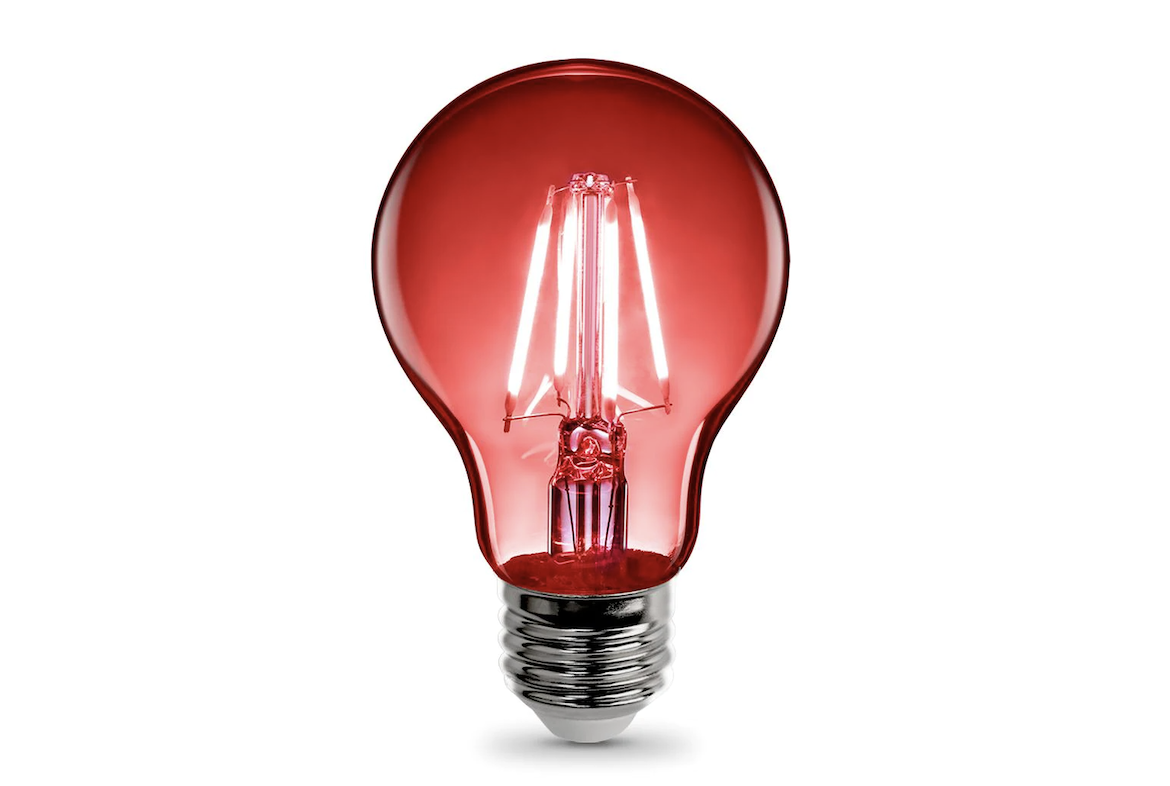The Best Lightbulbs To Promote Sleep—And the Type To Avoid, According to a Sleep Specialist
- Michael Grandner, PhD, sleep expert and director of the Sleep and Health Research Program at the University of Arizona
The best light bulbs to promote sleep
Red light is the most conducive for sleep. That said, that’s more so in relation to night lights, as most people aren’t going to up and replace all of their regular table lamp bulbs with red ones. According to Grandner, what you should do, however, is opt for yellow or orange-tinted bulbs, especially ones that can be dimmed or are naturally not as bright as your classic LED light bulb. Incandescent bulbs are your best bet then. They give off a warm soft white light that, while not obtrusively yellow or orange, is conducive to sleep.
“Bulbs that are dimmer and emit more yellow or orange light are much better for promoting sleep at night,” he explains, noting that bright bulbs with more blue-green light are best for supporting a strong daytime signal.
{{post.sponsorText}}
The most common misconception around light bulbs for sleep
So often, people assume that the only lights that need to be changed in the home are those in the bedroom. On the contrary, Grandner says that you should use yellow and orange-tinted lights wherever you’re going to be leading up to sleep and not just immediately beforehand. “If you are going to be on the couch in the evening, make sure that the light in your environment is conducive to sleep,” he says.
When blue light is beneficial
In short: When you’re actively trying not to fall asleep. According to the National Sleep Foundation, “Exposing yourself to blue light in the evening stimulates your brain into thinking it’s earlier in the day. Your brain slows or stops its release of melatonin, making it harder to fall asleep.” In that way, if you’re looking to stay up late and get work done but don’t want to rely on caffeine to do so, surrounding yourself with blue light can potentially help.
Oh hi! You look like someone who loves free workouts, discounts for cutting-edge wellness brands, and exclusive Well+Good content. Sign up for Well+, our online community of wellness insiders, and unlock your rewards instantly.
Loading More Posts...



